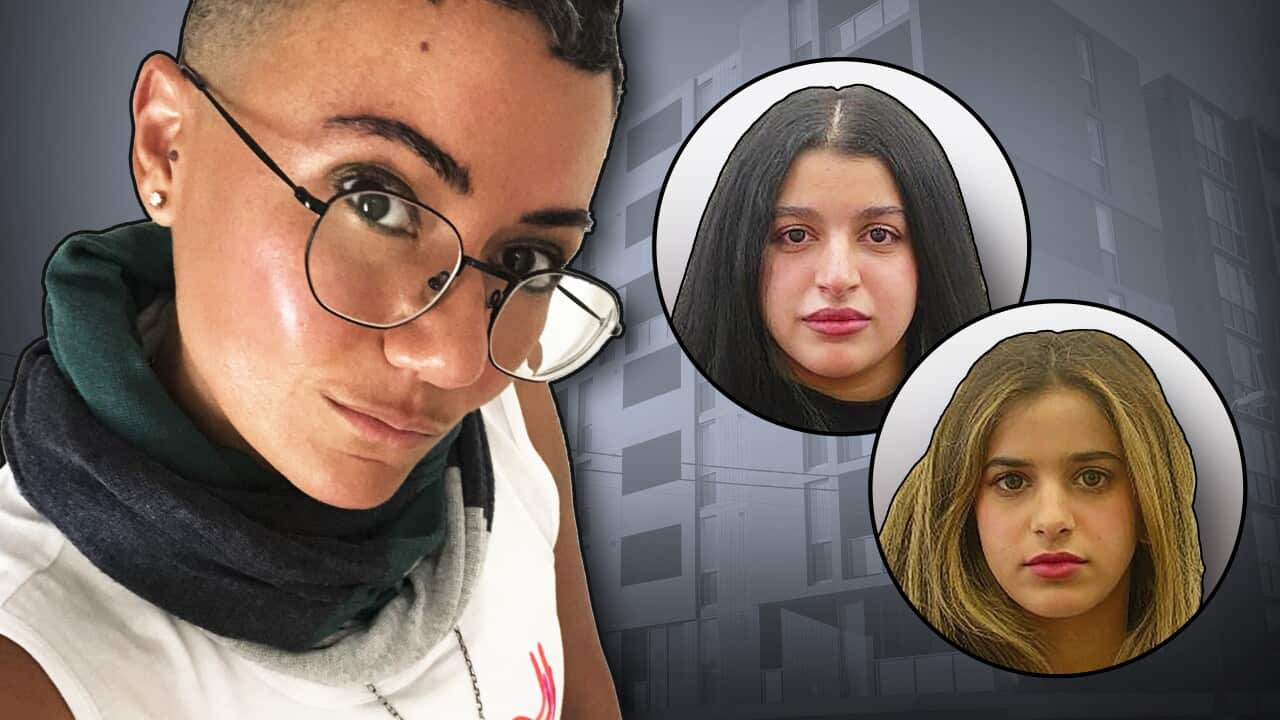This article contains references to suicide.
Police investigating the deaths of two sisters from Saudi Arabia who were found dead in their unit in Sydney's southwest last year have finalised their brief of evidence and handed it to the NSW coroner.
This is what we know about the case.
Who were the sisters?
They were 24-year-old Asra Abdullah Alsehli and 23-year-old Amaal Abdullah Alsehli, who came to Australia from Saudi Arabia in 2017.
They initially settled in Fairfield in Sydney's west before moving to a unit in the southwestern suburb of Canterbury in 2020. The pair were enrolled in TAFE and had worked as traffic controllers.
Neighbours of the sisters told Australian media last year that they mostly kept to themselves. One in August 2022, that they were "really good people".
They had almost no social media or online presence and did not appear to have been a part of any Saudi dissident networks.

The bodies of the two sisters were found inside their apartment in Canterbury, NSW in June 2022. Source: AAP / Bianca De Marchi
In a story published in The Daily Telegraph on Friday, a source familiar with the investigation reportedly told the masthead that payments the pair were receiving from the family stopped in early February.
After that, a source reportedly said that they "cut off communications with everybody" and had not left their apartment "since some time" that month.
A source apparently told the newspaper while there was no definitive reason the payments had ceased, it appeared the sisters had "some sort of a fall out" with their family in Saudi Arabia.
However, they spoke to their father at least once in April and had also spoken to the sheriff, who warned them they would be evicted because they were behind on their rent, the source reportedly said, which signalled they were still alive at least part of that month.

Amaal Abdullah Alsehli (left) and her sister Asra came to Australia in 2017 and were seeking asylum. Source: AAP / NSW police
Very little is known about the family. A neighbour told the ABC last year that the sisters' mother had visited Australia once and "didn't like it".
Australian media had also reported that the family didn't want photos of the women to be publicly released, but the investigating coroner overruled the decision in order to better assist the investigation.
There was "nothing to suggest" the family were suspects or that the sisters had fled Saudi Arabia, Detective Inspector Claudia Allcroft said last year.
Det. Insp. Allcroft said police spoke to the women in mid-March that year, and they appeared fine.
“No further action was required from police at that stage,” she said last year.
Their bodies were repatriated to their family in August last year.
What do we know about the investigation into their deaths?
NSW police said last year that the sisters' decomposing bodies were found in separate bedrooms of their two-bedroom Canterbury apartment in June after the building manager raised concerns for their welfare with police, when food was found left in common areas of the apartment block.
Police said at the time they believed the pair had died in early May, although The Daily Telegraph reported on Friday that it was in April.
The location of their bodies was confirmed in the brief of evidence, and they were so badly decomposed that their organs were almost nonexistent, according to the newspaper.

The inside of the apartment on Canterbury Rd, Canterbury, where the sisters were found dead. Source: Supplied / Domain
The second was also inconclusive, according to The Daily Telegraph, which reported both had found unusual levels of chemicals, including fluoride, sodium, and nitrate.
Sources reportedly told the masthead that police strongly believe that the sisters died in a suicide pact, and no one would be charged over their deaths.
The brief of evidence has reportedly been handed to the NSW coroner, who will determine the official cause of death.
After SBS News put questions to NSW police, a spokesperson said it would be "inappropriate to comment" as the matter was before the coroner.
'Saudi women often have no support network'
Human Rights Watch Australia researcher Sophie McNeill told SBS News last year that asylum seekers from Saudi Arabia were often more vulnerable than most other groups fleeing their homelands.
“They often have a really lonely experience,” she said at the time.
“They don’t want to connect with the Saudi community (here), they want to stay away from other Saudis."
Ms McNeill, a former investigative journalist, in 2019 documented the plight of Saudi teenager Rahaf Mohammed's (formerly Alqunun) escape from Saudi Arabia for the ABC’s Four Corners program. The report followed the teenager as she sought asylum in Australia, barricading herself in a hotel in Thailand before she was granted refuge in Canada.
Saudi Arabia faces ongoing criticism from human rights groups over its treatment of women in marriage, divorce, inheritance and child custody situations. While it now allows greater freedoms for women, including allowing them to drive, it still has a male guardianship system that requires women to seek permission from a male relative for tasks, including getting a job or certain medical procedures.
"Often these women have no support network apart from other asylum seekers like themselves," Ms McNeill said.
"They find it really hard to trust other people. They are especially avoiding people from the country they left."
She said the sisters' story was an example of why Australia needed to do more for people in such vulnerable situations.
Readers seeking crisis support can contact Lifeline on 13 11 14, the Suicide Call Back Service on 1300 659 467 and Kids Helpline on 1800 55 1800 (for young people aged up to 25).
More information and support with mental health is available at and on 1300 22 4636.











